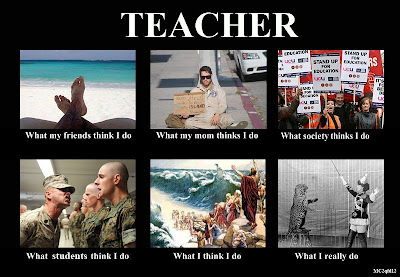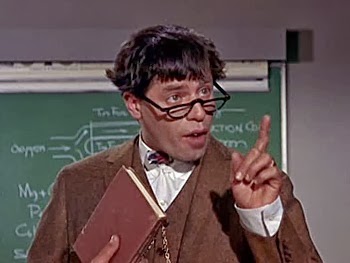
That rather precious title of this post refers to me, as the leader of one of the 25 teacher teams in Newark who won grants from the Teacher Innovation Fund from the Foundation for Newark's Future. (Reportedly there were several hundred applications.) FNF was created to administer what is popularly referred to as "the Facebook money," the large grant of Facebook stock gifted by Mark Zuckerberg to the city of Newark to invest in and improve its schools. In addition to the honor itself, we attended a nice reception on Thursday night, February 23rd, attended by Superintendent Cami Anderson and Mayor Cory Booker, both of whom I got to meet and speak to. So bully for me.
Even more exciting for me is the project itself, which is something I have been nurturing in my mind for nearly six months, since the possibility of working at History High first arose. Very simply, teachers will mentor students in conducting original historical research, which we will edit into a dramatic form and produce as a play. Such a play is part of a relatively new but fairly well-established genre with roots back into the early 20th century, with the work of Erwin Piscator and the Living Newspapers of the Federal Theater.
The form got a reboot in the mid-1980s with Emily Mann's play Execution of Justice, about the trial of Dan White for the murder of San Francisco mayor George Moscone and councilman Harvey Milk (an event popularly remembered for White's "Twinkie defense"). Unlike the tradition of historical drama represented by pieces such as Inherit the Wind and Sunrise at Campobello, Execution used multimedia and, most importantly, the actual words of participants and interviewees. It was the spiritual parent to The Laramie Project about the gay-biased murder of Mathew Shepherd and produced in literally hundreds of high schools across America; of the solo work of Ann Deveare Smith, most notably Twilight: Los Angeles and Fires in the Mirror some of them developed under Emily Mann's guidance; and The Exonerated, by Jessica Blank and Erik Jensen, who have popularized the term "verbatim theater" by which is meant that only documented words are used, without embellishment or comment by the playwrights.
Laramie and Exonerated are works of advocacy. Anna Deavere Smith and The Vagina Monologues are a sort of elevated journalism (the way that In Cold Blood is both journalism and art). This seems to us to be the proper approach for a school project. We have no business taking a point of view, not for a group project, nor do we feel entitled to draw a conclusion. In the manner of Piscator and Brecht, we will trust the audience to hear what we have found it and process it for themselves according to their own lights.
We considered a number of turning points in the modern history of Newark. (We selected Newark history as a matter of connecting to our students, as a matter of chauvinism, and by what primary sources will be most readily available, given reasonable limits of time and money.) The team picked the 1970 election of Kenneth Gibson, the first black mayor not only of Newark, but of any major northeastern city. It was the first major turn of events after the crisis of the 1967 riots which were both precipitated by, accelerated and crystallized the problem of white flight and the ensuing crumbling of the public and private infrastructure of the city. In the wake of these events, a Black Nationalist movement grew in strength, lead by, among others, the playwright and poet Amiri Baraka (formerly Leroi Jones, author of Dutchman). Baraka led the effort to focus this energy into putting Gibson in office, driving out the exceptionally cynical and corrupt administration of Hugh Addonizio.
So Gibson's election has a resonance and symbolism far beyond electoral politics; it goes to the heart of African-American power and self-determination in the course of American history.
As I write this, the plan is to begin research as soon as possible and to have the bulk completed by the end of the school year, to begin composition before the end of the year with the summer hiatus to gather our thoughts and to complete the script and produce the play in the fall semester, preferably before the winter holiday break. Naturally, the material will lead us, so the plans are subject to change.
What I am really looking forward to is to see what effect the students will have on the project and, hopefully, the project will have on them. I don't mind saying that if this is successful, I would like to see it became a tradition and a hallmark of History High.
But first, we begin.





